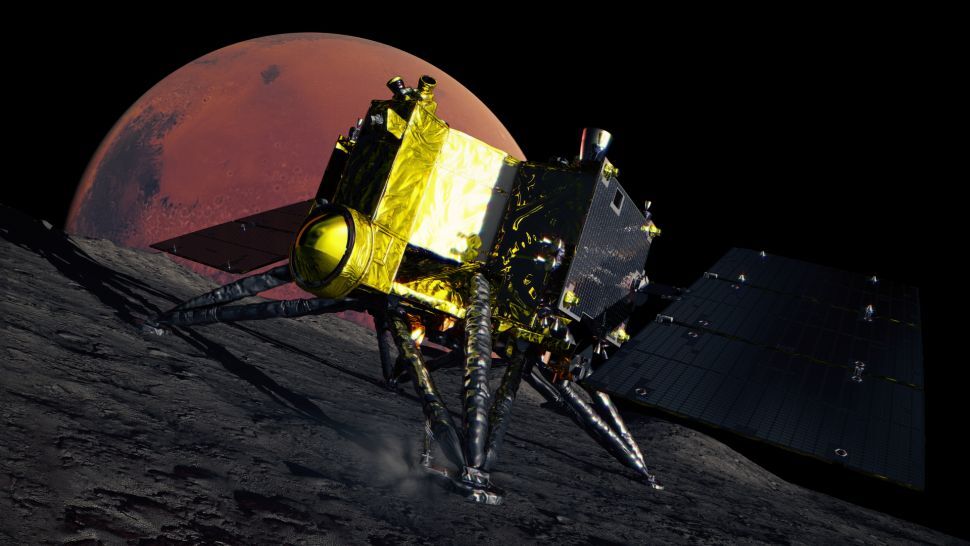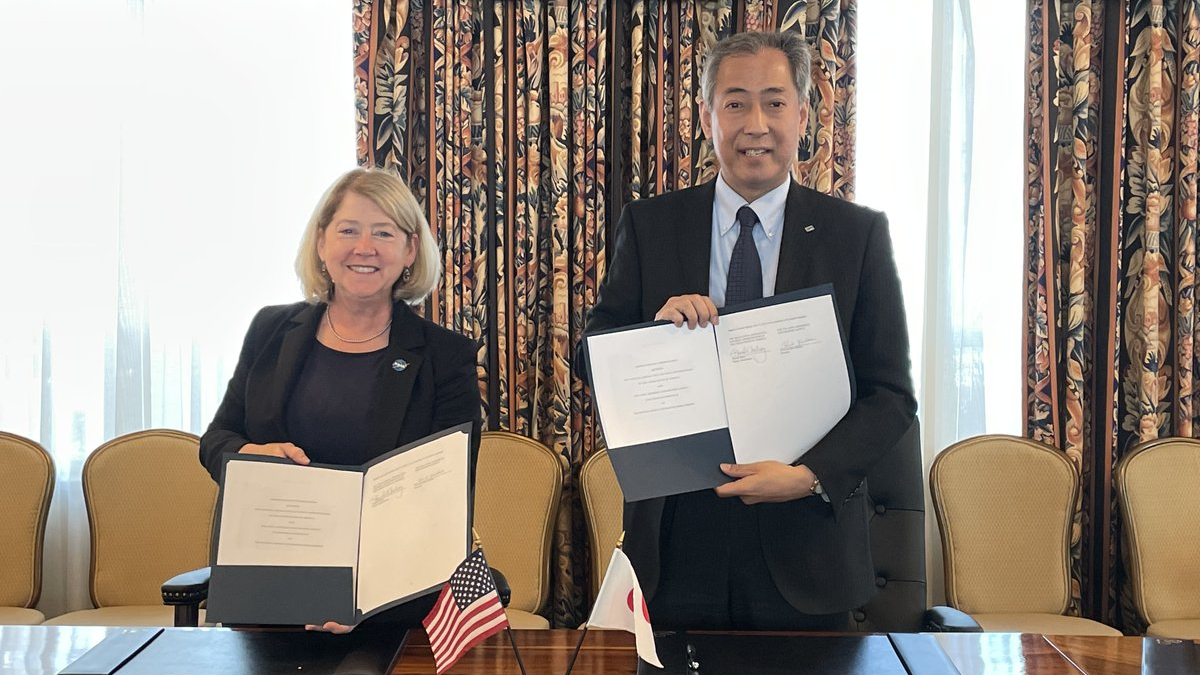20.04.2023
The U.S. agency will provide 2 instruments on Japan's Martian Moons Exploration mission to collect samples of the Mars moon Phobos.

Japan's Martian Moons Exploration probe lands on Phobos, the largest moon of Mars, with the Red Planet in the background in an artist rendering. (Image credit: JAXA)
COLORADO SPRINGS, Colorado — NASA is going to a moon of Mars with Japan.
The U.S. space agency on Monday (April 17) signed a memorandum of understanding with the Japan Aerospace Exploration Agency (JAXA) to join Japan's Martian Moon Exploration (MMX) mission to collect samples of the Martian moon Phobos and return them to Earth.
The agreement, which NASA Deputy Administrator Pam Melroy signed with JAXA President Hiroshi Yamakawa here at the 38th Space Symposium, calls for NASAto provide two experiments on the MMX mission when the spacecraft launches to the Red Planet in 2024.
"We've got great partners at JAXA and they are leading this ambitious mission, bringing back the first samples of the Martian moon Phobos," NASA administrator Bill Nelson said in a video message(opens in new tab) on Twitter on April 16 ahead of the agreement's signing.
"We've had a long history in space together and in this golden age of exploration, the United States and Japan are certainly going to continue to work together. Together, we are going to deepen our knowledge of the solar system. We are going to unlock the mysteries of the universe."

NASA Deputy Administrator Pam Melroy and JAXA President Hiroshi Yamakawa signed a Memorandum of Understanding to cooperate on the Martian Moons Exploration mission to Phobos on April 17, 2023 at the 38th Space Symposium in Colorado Springs, Colorado. (Image credit: JAXA)
Under the memorandum of understanding, NASA will provide an experiment called the Mars-moon Exploration with Gamma rays and Neutrons (MEGANE) and a Pneumatic Sampler for the MMX spacecraft. The NASA agreement follows an exchange of notes (meaning, a record of agreement) on April 11 between the governments of Japan and the U.S. to lay the foundation for the Mars mission cooperation.
"With the help of international partners such as NASA, JAXA will continue all efforts towards a successful MMX mission," JAXA officials wrote in statement(opens in new tab).
Japan's MMX mission is currently scheduled to launch toward Mars in 2024 and enter orbit around the planet in 2025. It will visit both moons of Mars, Phobos and Deimos, but only land on Phobos, the bigger of the two Martian satellites.
MMX will only touch down on Phobos for a few hours to collect samples of the moon. Those samples will then be returned to Earth by 2029, giving scientists their first-ever samples collected directly from Phobos.
JAXA has a successful track record of sample-return missions in our solar system. In 2010, Japan's Hayabusa spacecraft delivered samples from the asteroid Itokawa to Earth. The country's Hayabusa2 probe successfully returned samples of the asteroid Ryugu to Earth in 2020.
Quelle: SC
